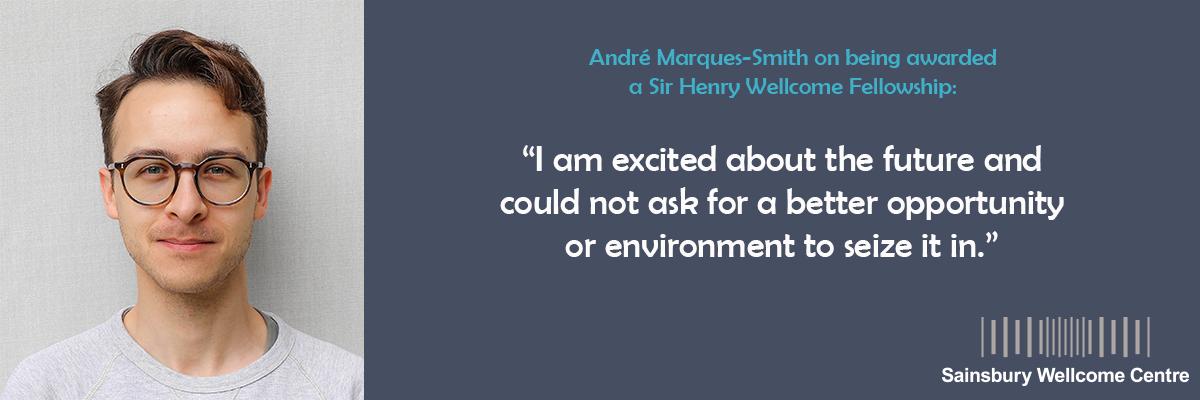
André Marques-Smith awarded a Sir Henry Wellcome Fellowship
The Sainsbury Wellcome Centre is pleased to announce that André Marques-Smith has been awarded a Sir Henry Wellcome Fellowship.
“The Henry-Wellcome Fellowship is a fantastic opportunity for me as it will allow me to transition into the world of Systems Neuroscience by learning from top labs such as Sonja Hofer's and Adam Kampff's at the SWC, and our collaborator Mike Halassa's at MIT, as well as all my colleagues at those two institutes.”
“By providing a level of autonomous funding, the fellowship encourages and trains postdocs to become more independent and realize their full potential on the road to one day becoming a group leader. I am excited about the future and could not ask for a better opportunity or environment to seize it in,” commented André Marques-Smith.
Prior to joining the Kampff and Hofer labs, André worked on Developmental Neuroscience first for his PhD in the labs of Zoltán Molnár and Simon Butt at Oxford University and then during a postdoc in lab of Beatriz Rico at Kings College London. While he found the ability of the nervous system to self-assemble during development a fascinating topic, over time his interests shifted towards Systems Neuroscience, the focus of the SWC.

Speaking about his current research interests, André commented:
"During waking hours, our brains are bombarded with a barrage of information from the sensory environment. How do animals cope with this onslaught? The solution that evolution came up with is what we commonly call “attention”: the ability to filter information depending on where we are, how we feel, and what our current goals are.”
“However, deciding which information gets into the brain is only part of the story. Because the mammalian brain processes information across many distributed circuits, once information gets in, it can be used in a variety of different ways. A less researched component of attention is therefore setting priorities on what should be done with incoming information: which brain circuits should be used to analyse it and control behaviour. You can imagine that depending where you are, how you feel and what you know (your "context"), the way you process and engage with the same stimulus can be quite different.”
“We believe that the thalamus, a deep, hub-like structure, plays a key role in boosting circuits across the brain for adapting information processing and behaviour to current context. To test this idea, I will use state-of-the-art electrophysiology to record from the thalamus, whilst monitoring activity across the cortex with wide-field calcium imaging in behaving mice. Within the thalamus, I will focus on the interplay between excitatory and inhibitory neurons: the former send messages to the rest of the brain, whereas the latter control which excitatory thalamic neurons are active.”
“My goal is to test whether, depending on context, different pathways in the thalamus are used for boosting specific brain circuits. This work could reveal global principles for regulating information flow in the brain.”
Contact:
April Cashin-Garbutt
Communications Manager, Sainsbury Wellcome Centre
a.cashin-garbutt@ucl.ac.uk
+44 (0) 20 3108 8028